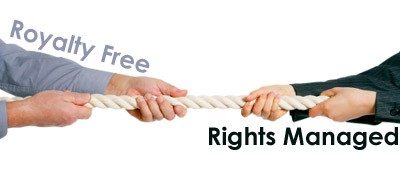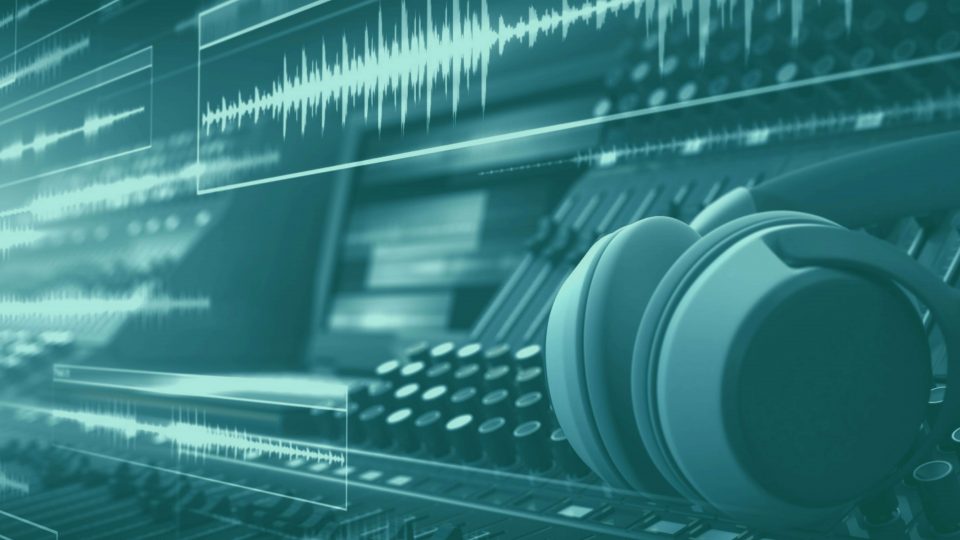What Does Royalty Free Music Mean?
“Royalty free music” can be a confusing term if you’re not in the know about music licensing. There are a lot of wrong interpretations about what royalty free music means and what you can & can’t do with it.
But it no longer needs to be a confusing term. Despite the ever-growing interest in royalty-free music for YouTube videos and hip hop backing tracks, many have the wrong idea about this kind of content.
What Does Royalty Free Mean?
A royalty free license is a type of licensing agreement in regard to intellectual property. Intellectual property is property such as copyrights, patents, and trademarks that one or multiple people can own. For a one-time payment, the license gives you a set amount of rights that dictate how you can use the royalty-free content.
You may use a royalty free song multiple times and not need to pay any fees (royalties) to the original creator each time you use the content. The license agreement doesn’t end, and there are no restrictions based on place or time.
Many sites such as Synchedin offer royalty free music, while sites like Mixxed offer royalty free samples. Contributors upload content to sites like ours and users like you pay a one-time fee to use the music/samples in your own work. The original creator and content site will split the fee between themselves.
While a royalty free license has no time or geographical restrictions, one restriction a license may be subject to is a set amount of uses – in contrast to what we said earlier. The license may likewise have restrictions in respect to the number of users. Or both! Furthermore, you cannot resell the licensed content to other people. While, typically, you can use the content as much as you like, you cannot resell the content to make a profit.
Despite paying a one-time fee, you are not the rightful owner of the content either. In fact, you’re not the rightful owner of the content no matter how much you pay.
A royalty free music license is the direct opposite of a “rights managed” license. A rights managed agreement dictates that the buyer pays royalties each time they use the content that the license refers to. Not only would you need to pay according to the number of times you use the content, but you may also well have to pay bigger royalties if your content is reaching a bigger region.

What Can You Do With A Royalty Free License?
With the concept of royalty free in mind, let’s talk about what you can and can’t do with royalty free music.
Should you purchase a royalty free song or sample from Synchedin or Mixxed respectively, you can use the content as many times as you want in your projects. In case you’re thinking that you have to pay out if your content blows up – you don’t!
Whether your project gets 100 views or 100,000 views, you only pay a one-time payment for the music. Equally important is how you don’t need to pay out if you use the song or sample 5, 10 or 20 years after making the one-time payment either.
As we said, you do need to pay a one-time payment for royalty free music. You may find royalty free samples and music online free of charge, but these aren’t always what they seem. For example, someone who has purchased a royalty free license for a sample may put the sample online again – but in their own name. This is a big no-no as it’s classed as theft of intellectual property. It’s far less common for users to reupload a royalty free song in their own name but it can still happen.
What Doesn’t Royalty Free Music Mean?
Although it’s free of royalties, royalty free music is not free of charge. You have to pay the creator a one-time fee in order to get access to the royalty-free license – and therefore the content itself. In the same way that a fat-free yoghurt is free of fat, it’s not free of charge.
Royalty free music is not free of charge.
You may be able to use the music as many times as you like for as long as you like, but above all the original creator still owns the copyright. In actual fact, there is no “copyright free music” on this blue earth in the eyes of copyright law. If you make a song you automatically own the copyright for it whether you license it or not. Hot tip: licensing your music makes copyright enforcement much easier. In some cases, you’ll find the creator doesn’t care, like with many beat producers on YouTube, and you can use the music however you like.
Many think that royalty free music is a specific type of music. The truth is that music of any genre can be royalty free! “Royalty free” is only concerned with the licensing surrounding the music. Whether a jazz song, metal, or Drum and Bass, royalty free music is free of royalties for commercial use.
Music of any genre can be royalty free.
If you buy a song from iTunes, a CD store, or anywhere else – you only have rights granted under Private Ownership laws. You can’t use the music for any commercial projects like YouTube videos (which requires a sync license), even if your video makes no money. You can only listen to the music on your phone, computer, etc. Royalty free music is music with a license for commercial use. You can use the music on your website, or any other commercial way unless otherwise specified in the royalty free license.
If you buy a song from iTunes, a CD store, or anywhere else – you can’t use the music for any commercial projects like YouTube videos.
But in many cases, public performance royalties are not included in royalty free licenses. A copyright owner receives public performance royalties when their music is publicly played on the radio, on TV, etc. TV or radio stations pay public performance royalties even if they play royalty free music. Even if your project with the music makes it big you do not need to pay these royalties because your usage is very unlikely to be thought of as a “public performance”.
The TV network in question pays Perfance Rights Organisations like PRS (the UK’s PRO) for the use of the music. The PRO will then pay the original creator (owner of the composition copyright) on behalf of the network. So, if you purchase a royalty free music license then it’s it is completely free of royalty payment for you. But a PRO will pay the creator for the use of the same song publicly.
You’ll find all the royalty free samples that your music needs in the Mixxed sample library.
The sampling revolution has risen in popularity and shaped music since the early 1970s. Sample culture continues to transform how millions of artists and producers do their thing in DAWs.
You too can break conventional norms, challenge the status quo, and open Pandora’s box of sound design.
Mixxed works with a growing number of sample labels and contributors to provide you with an affordable sample subscription service that’s more accessible than any before.
You’ll have access to our growing catalogue of loops, one-shots and sound effects that you can browse, download and keep forever for less than $3 a month.
Sign up today to find your sound!
